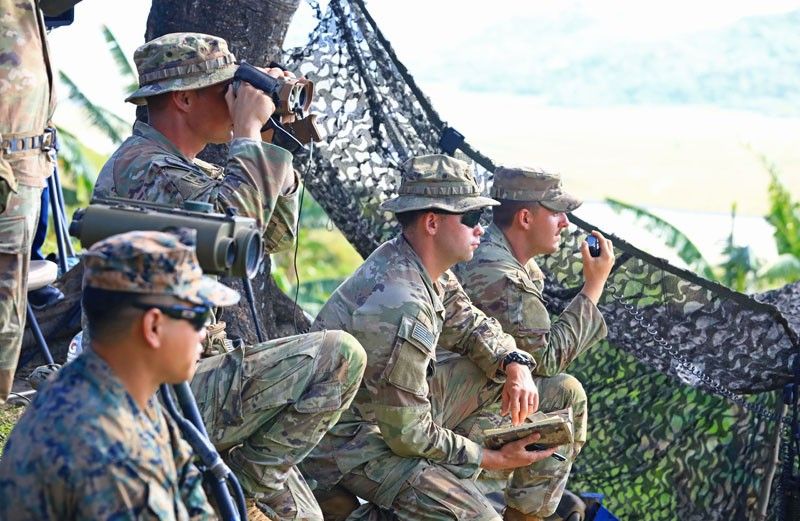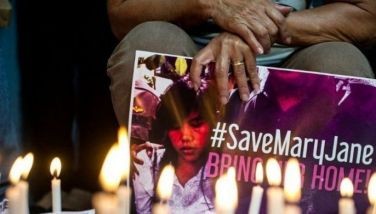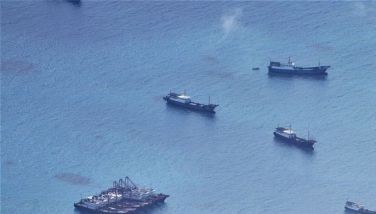Biggest Balikatan to highlight 'whole-of-alliance' defense approach — analysts

MANILA, Philippines (Updated 2:01 p.m.) — The Balikatan (shoulder to shoulder) exercises this year between the Philippines and United States will be showing the "whole-of-alliance" approach in exploring combat and defense practices, analysts said.
This year’s exercises will see the participation of 17,680 military personnel — 12,000 from the US, 5,000 from the Armed Forces of the Philippines, and 111 from the Australian forces. This is nearly twice as many as last year’s 9,000 troops who participated in drills across Luzon.
And with "whole-of-alliance" approach in this year's exercises, the combat and defense practices will make use of not only the Philippine facilities, which the United States have access to, but also share tactics with each other as troops emphasize interoperability.
Chester Cabalza, founder and president of International Development and Security Cooperation, noted the use of the Philippine rotational sites under the Enhanced Defense Cooperation Agreement and the simulation of naval warfare.
"It can be construed as a whole-of-alliance approach and stronger strategic partnership since like-minded nations are expected to share combat experiences and defense best practices mainly due to geopolitical circumstances and not on ideological issues," Cabalza told Philstar.com.
This means going beyond issues with or involving China. With new exercises such as a simulation of naval warfare exercises and highlighting the AFP's role in territorial defense, Cabalza said this year's Balikatan will help troops familiarize themselves with possible strategies to defend the country's seas.
US President Joe Biden has said he wants to establish stronger ties with the Philippines under the new administration following "rocky times" in the Duterte years. Since President Ferdinand “Bongbong” Marcos Jr. took office, multiple high-ranking officials, including US Vice President Kamala Harris, have visited the Philippines to reaffirm Washington's commitment to its treaty partner and former colony.
RELATED: Balikatan 2017 smaller, but not 'downsized'
Warmer ties with US
Former President Rodrigo Duterte’s "independent foreign policy" saw warmer ties with China and a declared "separation from the United States both in the military…not social, but economics also." Duterte also threatened to scrap the Visiting Forces Agreement, which allows the joint exercises in the Philippines. He later rescinded the order to terminate the agreement, citing US assistance during the pandemic.
With the large contingent joining this year’s exercises, this could provide a learning opportunity for all countries observing the Balikatan. Aside from Australia, representatives from Japan and the United Kingdom will be observers at the joint military drills.
READ: 'Stronger military, alliances needed to complement talks on West Philippine Sea'
"We can consider this as another manifestation of an ‘accommodationist’ Philippine foreign policy towards the US – a label that can be used for our China policy under Duterte," WR Numero Research CEO Robin Michael Garcia told Philstar.com in a text message.
"We are shifting more towards the US under the presidency of Bongbong Marcos."
Important military exercise
Analysts noted that the exercise comes at a time of rapid geopolitical changes in the region, taking note of developments in the South China Sea as well as the entire Indo-Pacific region as well as the possibility of Chinese action along the Taiwan Strait.
RELATED: What the Philippines can learn from China's reaction to Pelosi's Taiwan visit
Cabalza noted that China is becoming a “major military threat” in the South China Sea. China has repeatedly said that is not seeking hegemony in the region but that it will take steps to defend its interests.
The Asia Power Index by Australia-based think tank The Lowy Institute previously noted that while China continues to gain power over its neighboring countries in the region, the United States remains the most influential country in Asia. The institute further explained that while China is gaining influential momentum, other countries do not trust Beijing as much.
However, Cabalza pointed out that the exercises go beyond China’s perceived threats in the region.
"It is not centered on containing China per se, but it will be a military exercise on familiarity on the ground and leveraging on technological defense equipment," Cabalza said, noting that it is the Armed Forces of the Philippines’ chance to show its "biggest venture of transformation from internal security operations to territorial defense."
- Latest
- Trending



































